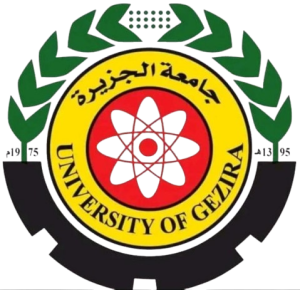About Wad Medani
University of Gezira – Excellence in Education, Research, and Community Service
- University High Administration
- About the University
- VISION & MISSION
- Aims and objectives
- University Council
- University senate
- The Vice-Chancellor's address
- Facts and Figures
- Organizational Structure
- Transformation in the Institutional Identity
- Strategic Partnerships
- Accreditations and Awards
- About Wad Medan
- About Sudan

About Wad Medan
Introduction
Wad Medani, often referred to simply as Medani, is one of Sudan’s most prominent cities. Situated on the banks of the Blue Nile, it serves as the capital of Al Jazirah State and is renowned for its agricultural significance, cultural richness, and historical importance. With a population that exceeds 300,000, Wad Medani is the second-largest city in Sudan after the capital, Khartoum. Its strategic location and historical role make it a vital hub for trade, education, and governance.
Geographical Location
Wad Medani is located approximately 186 kilometers southeast of Khartoum, nestled within the fertile plains of the Gezira region. The city’s proximity to the Blue Nile River has historically provided a lifeline for agriculture and trade. The Gezira Scheme, one of the largest irrigation projects in the world, surrounds Wad Medani, enhancing its role as a center of agricultural excellence. The region’s flat terrain and access to water make it ideal for cultivating cotton, sorghum, wheat, and other crops.
Historical Background
Wad Medani’s history dates back to the pre-colonial era when it was a small trading post and settlement. During the Anglo-Egyptian Condominium (1899-1956), the city expanded rapidly due to its inclusion in the Gezira Scheme, which transformed it into an agricultural and administrative hub. The scheme was instrumental in the production and export of cotton, which became the backbone of Sudan’s economy during much of the 20th century. Today, Wad Medani retains its importance as a center for trade and agricultural development.
Economy
Agriculture forms the backbone of Wad Medani’s economy. The city serves as the operational heart of the Gezira Scheme, where modern irrigation systems support vast tracts of farmland. Cotton remains a key crop, though farmers also produce fruits, vegetables, and grains. The city’s markets buzz with activity, offering local produce, textiles, and artisanal goods. Additionally, Wad Medani has a growing industrial base, with factories producing textiles, sugar, and food products.
Wad Medani is a melting pot of Sudanese cultures, bringing together diverse ethnic groups and traditions. The city is known for its vibrant music scene, particularly for promoting traditional Sudanese folk music. Festivals and celebrations often feature local dances, poetry, and musical performances that reflect the region’s rich cultural heritage.
The city’s mosques and religious institutions play a central role in community life. Islamic traditions are deeply embedded in the daily routines of its residents, and Friday prayers are a unifying event for the city’s population. Despite its traditional roots, Wad Medani has embraced modernity, with schools, universities, and cultural institutions contributing to the intellectual and social development of the region.
Educational and Health Facilities
Wad Medani is home to several educational institutions, including the University of Gezira, which is one of Sudan’s most prestigious universities. The university specializes in agricultural sciences, medicine, and social studies, reflecting the region’s priorities and strengths.
The city’s healthcare facilities serve not only the residents of Wad Medani but also those from surrounding towns and villages. Wad Medani Teaching Hospital is a notable institution, offering a range of medical services and acting as a training center for medical students and professionals.
Tourism and Landmarks
Though not a traditional tourist destination, Wad Medani offers unique attractions for those interested in history and culture. The Blue Nile provides opportunities for scenic views and boat rides, while the surrounding countryside is ideal for exploring Sudan’s agricultural heartland.
The Gezira Scheme’s irrigation canals are a testament to engineering and agricultural innovation and attract scholars and professionals interested in sustainable farming practices. Additionally, the city’s bustling markets, such as the Souq Al-Arabi, offer an authentic experience of Sudanese daily life.
Challenges and Future Prospects
Like many cities in Sudan, Wad Medani faces challenges such as rapid urbanization, infrastructure deficits, and economic uncertainty. The city’s reliance on agriculture makes it vulnerable to climate change and fluctuations in global commodity prices. However, ongoing investments in education, healthcare, and infrastructure provide hope for sustainable development.
Wad Medani has the potential to become a model city for balancing tradition and modernization. Its strategic location, combined with its agricultural expertise and cultural richness, positions it as a key player in Sudan’s future development.
Conclusion
Wad Medani is a city that encapsulates the spirit of Sudan—rich in history, culture, and natural resources. Its role as the heart of the Gezira region underscores its importance to the country’s economy and identity. As Wad Medani continues to grow and evolve, it remains a beacon of resilience and innovation in Sudan’s journey toward progress and prosperity.
